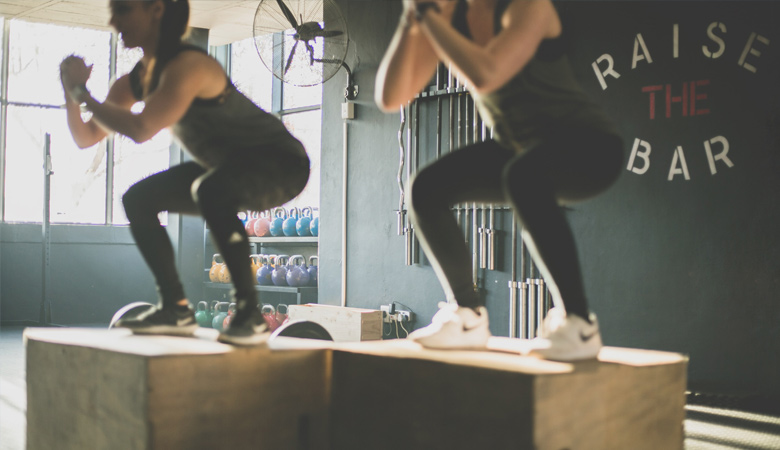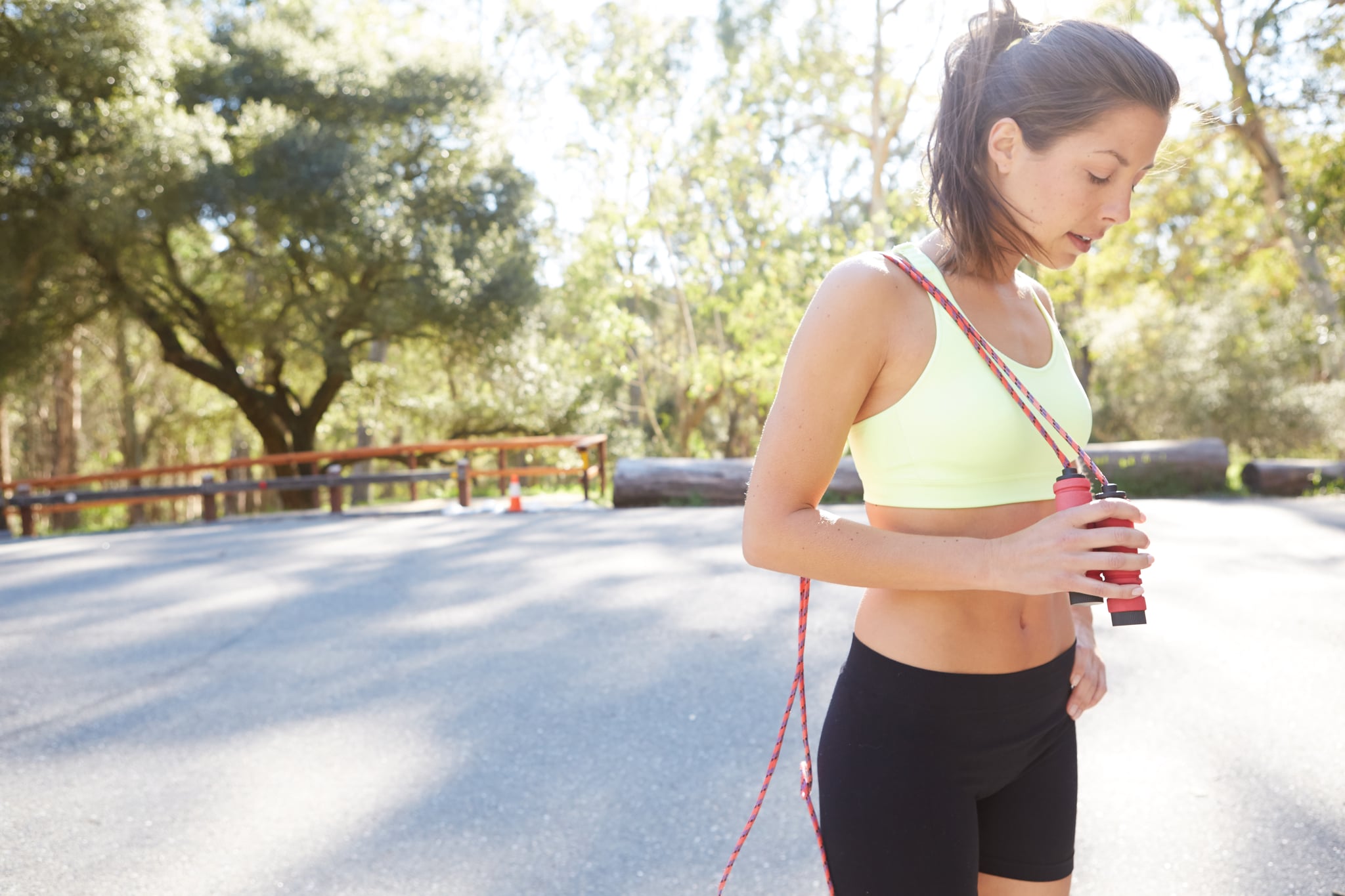
Everyone knows that nutrition is important for exercise; any amount will be working your muscles and heart and burning energy. But a sprint and a marathon aren’t the same; every sport needs a different level of exertion and endurance, and what we should eat for which activity isn’t always immediately obvious.
To work out exactly how to fuel for your sport – effectively choosing what to eat when – you need to understand how your body uses energy. In our guide below we cover some of the basic principles of sports nutrition and show you how you can start to determine exactly what you should eat based on the activity you’re doing.
First off, think about you

The first thing to understand is that every body is different. What works for one person might not work for another. Most people know that men, in general, need more daily calories than women, but did you also know that women’s iron needs are generally greater – with a lack of iron causing fatigue that can affect a woman’s levels of activity?
Alongside general gender differences, the amount of nutrients you need will also depend on your height, weight, how fast your metabolism works, and how often and intensively you exercise. If you generally struggle to gain weight, you probably have a fast metabolism and will need to eat more if you are exercising – working this out will change how you fuel for activities.
It’s also important to think about your personal goals for your activity. Are you looking to lose or maintain weight? Are you trying to build muscle or cardiovascular fitness? All these things will play a role in your nutritional needs.
No one understands your body better than you, so be sure to think about what your own needs are when building a nutrition plan.
Things to remember:
1. Understand your daily calorie needs. This calculator may help you.
2. Think about your goals and how these might impact your calorie intake. You could use an app such as MyFitnessPal to help you work this out.
Basic sports nutrition principles

Before looking at individual sports, it’s essential that you first understand the basic principles of sports nutrition. It makes sense to start with macronutrients, that is, the things you need to eat in large amounts to fuel your body.
Carbohydrates are your body’s main energy source. Your body will use carbohydrates first if it needs energy, converting them into glycogen and storing them to feed your muscles during activity, with any excess being stored as fat. You should eat carbs as part of your diet to make sure your body has ready-access to this energy, and particularly after strenuous exercise to replenish glycogen stores. Your muscles will typically store enough for around a couple of hours of exercise. Once your glycogen is used up, your body will pull energy by breaking down other sources, such as fat and protein – but this is less efficient and takes longer. This is why some athletes top-up with carbohydrate-rich food and drinks during longer races. You can read more about this here.
As well as carbohydrates, protein is also a key macronutrient for exercise. Whenever you put extra load on muscles (particularly during strength training) the proteins in your muscles break down. Eating protein after exercise helps to repair these proteins, and it’s this process of break-down and repair that effectively helps you to ‘build’ muscle. It’s therefore generally recommended you eat protein within an hour of exercising. You can read more about this process here.
As well as macronutrients, it’s important to think about micronutrients too. These are the essential vitamins and minerals needed to keep your body healthy. There are many different kinds of micronutrients needed to maintain a healthy active body including antioxidants, B vitamins and vitamin D, but the easiest way to make sure you’re getting enough is to eat a varied diet. Different nutrients usually appear in different coloured foods – so try to ‘eat the rainbow’ with a wide variety of fruits and vegetables.
Things to remember:
1. Eat carbohydrates pre and post work out for energy, and to restore glycogen stores.
2. Eat protein post workout to build muscle.
3. Make sure you’re also getting enough vitamins and minerals (micronutrients) – read this guide to find out more.
Putting this into practice
Now we know the basics, let’s cover how this works for particular activities…
Short bursts
(5km runs, short swims, HIIT classes)

For short bursts of activity (less than an hour) you won’t generally need to make any largescale adjustments to your diet unless your activity is particularly strenuous. Make sure you include some carbohydrate in your diet, and top up with some carbs and protein after your workout to help you recover.
For shorter bursts, some exercisers consume caffeine to aid their performance. This has been shown to speed up fat burning, as well as aiding performance and endurance.
Whatever you choose to do, make sure you stay hydrated. Aim to drink at least 250ml (an average glass) of water before exercising, and around 500ml during and after an hour-long session to maximise energy release and recovery.
Longer distances (10km+ runs, cycles, obstacle races, kayaking and paddling)

For longer distances or more strenuous activities it may help to be a little more prepared. You might find it useful to eat a carbohydrate-rich meal the night before, or a carb-rich (but easily digestible) snack around one-hour before your activity to make sure your glycogen stores are fully-stocked. Things like bananas and dates are great for this.
If your sport is low intensity but long timeframe, such as a couple of hours of cycling, it’s a good idea to eat slow-releasing carbohydrates such as whole grains to keep you fuelled along your distance. You might also choose to include a sports drink to sustain your performance.
Once you’re done, make sure you have a protein and carbohydrate-rich meal or snack at the ready to combat fatigue and aid your recovery, and aim to eat this within an hour of completing your event.
Ultra races
(marathons, ultramarathons, elite-events)

For much longer events, you will wind up using up your body’s stores of glycogen, causing muscle aches and fatigue. For this reason, as well as your carb-rich meal the night before, you’ll likely need to top up along the way – it’s recommended that for longer ultra-length races that you try to consume around 200-400 calories per hour, or eat some kind of high-energy snack every 30 minutes.
Many runners choose to use energy gels, as these are easy to eat and digest while running, although you should try and work in some solid food if you can. If you’re preparing for an ultra-race, make sure you experiment with different foods during your practice to see what works for you. You can read what some ultra-racers eat during their race here.
A longer race might also be the time for a more specific hydration needs. An electrolyte sports drink will help you to replenish the salts that you lose through sweating and help to sustain your performance, and they usually also contain a top-up of carbohydrates in the form of sugar to keep you going.
Now you know how to properly fuel for whatever sport you’re doing, why not push for that new challenge you’ve been thinking about? Have a look at our activities to see what you might take on next.




